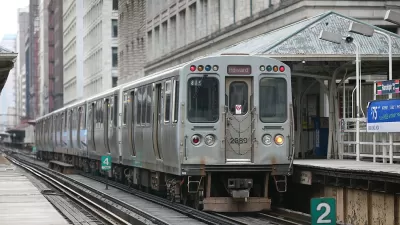Angie Schmitt discusses new research from U.S. PIRG indicating youngsters are relying on their cars less than the generation before them, motivated by more than just thinning pocketbooks.
A study released Thursday by the U.S. Public Interest Research Group shows young people (defined here as 16- to 34-years-old) are getting comfortable finding new ways to get around.
While they're driving less (vehicle miles traveled fell by almost a quarter over the first decade of the millennium for the cohort), they're getting out on two wheels more (bicycle trips increased by roughly the same percentage).
For youngsters in families with high income – that's $70,000 or more – the trend is even stronger, riding bikes and buses twice as often in 2009 as they did in 2001.
Many are making the shift for environmental reasons, a concern less prevalent among respondents over 34. In addition, Schmitt offers the following explanation: "Higher gas prices, obviously, help put owning a car out of reach for many younger Americans, especially as the age group struggles in a less-favorable job market. [Also], technology, specifically smartphones, and their incompatibility with (safe) driving, help make alternatives that much more inviting."
FULL STORY: U.S. PIRG Report: Young Americans Dump Cars for Bikes, Buses

Planetizen Federal Action Tracker
A weekly monitor of how Trump’s orders and actions are impacting planners and planning in America.

Map: Where Senate Republicans Want to Sell Your Public Lands
For public land advocates, the Senate Republicans’ proposal to sell millions of acres of public land in the West is “the biggest fight of their careers.”

Restaurant Patios Were a Pandemic Win — Why Were They so Hard to Keep?
Social distancing requirements and changes in travel patterns prompted cities to pilot new uses for street and sidewalk space. Then it got complicated.

Platform Pilsner: Vancouver Transit Agency Releases... a Beer?
TransLink will receive a portion of every sale of the four-pack.

Toronto Weighs Cheaper Transit, Parking Hikes for Major Events
Special event rates would take effect during large festivals, sports games and concerts to ‘discourage driving, manage congestion and free up space for transit.”

Berlin to Consider Car-Free Zone Larger Than Manhattan
The area bound by the 22-mile Ringbahn would still allow 12 uses of a private automobile per year per person, and several other exemptions.
Urban Design for Planners 1: Software Tools
This six-course series explores essential urban design concepts using open source software and equips planners with the tools they need to participate fully in the urban design process.
Planning for Universal Design
Learn the tools for implementing Universal Design in planning regulations.
Heyer Gruel & Associates PA
JM Goldson LLC
Custer County Colorado
City of Camden Redevelopment Agency
City of Astoria
Transportation Research & Education Center (TREC) at Portland State University
Camden Redevelopment Agency
City of Claremont
Municipality of Princeton (NJ)





























